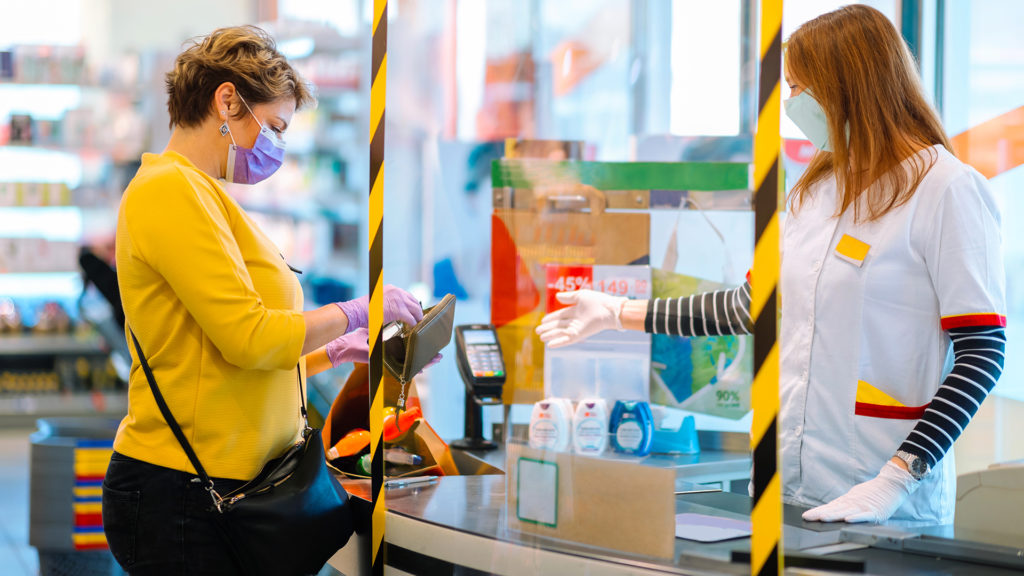
There is no doubt that public interest in corporate social (ir) responsibility (CSR and CSIR) in the retail industry had been increasing dramatically over the past few years prior to the onset of COVID-19. Retailers of all shapes and sizes have, for some time, been taking steps to demonstrate socially responsible behaviours in order to reaffirm their position as good corporate citizens. These actions have been widely publicised to consumers and include offering targeted financial support for charities, sponsorship of local community events, changes to product range and environmentally-friendly packaging and initiatives to encourage equality and diversity in the workplace.
The onset of COVID19 has generated a whole new level of interest in this agenda, prompting intense scrutiny of retail responses to the crisis. As a research team, we have already accumulated over 150 pages of field notes, documenting the actions being taken as well as the results of detailed scrutiny from the press, social media and trade bodies.
From an academic perspective, there is much debate in the CSR/CSIR literature about what constitutes ‘good’ and ‘bad’ activity, and which stakeholders are best positioned to make an assessment[1]. Irrespective of the different perspectives, retail responses generally align to those classified on the spectrum of CSIR and CSR behaviours.
At the ‘good’ end of the spectrum we see retailers doing all they can to safeguard their employees, customers and suppliers during this crisis. Superdrug for example, has promised full pay for parents in the workforce who are unable to work remotely and full pay, backdated to March 16, for anyone unable to work due to sickness or self-isolation. Many retailers are also offering support for the most vulnerable customers, with dedicated opening hours for the elderly and NHS workers. Early in the crisis Sainsbury agreed to introduce immediate payment terms for its suppliers with under £100,000 turnover – a move that will benefit nearly 1,500 small businesses. Others appear to be going beyond the call of duty, diverting expertise and resources to fight the bigger cause. Boots, for example, is teaming up with the Government to operate testing facilities for NHS workers and supply volunteer healthcare clinicians as testers. B&Q’s parent company, Kingfisher, is also providing £1m of personal protective equipment – including protective eyewear and masks – and funding for health services across Europe.
At the other ‘bad’ end of the scale, there are those who appear to be doing a bare minimum to comply with legislation and seem reluctant to prioritise employee welfare unless absolutely pressurised to do so by negative media coverage.
The key question being asked by many retail commentators is what will be the long term impact of these activities on corporate image and brand reputation? Which activities will be remembered and which of these will have a positive (or negative) influence on future customer loyalty?
According to a recent report[2] actions with three characteristics that will define retail businesses during this testing period. Retailers who show resilience, bravery and kindness, in dealings with stakeholders, employees, customers and society at large, will be those most likely to survive these turbulent times. It is the notion of kindness, incorporating ‘friendliness, generosity and consideration’ [3] which appears to align most closely with socially responsible behaviour and offers a useful lens to reflect on the long term impact.
There are undoubtedly retailers who have been regularly undertaking acts of kindness long before the onset of COVID-19. They have kindness engrained in their DNA, and it influences all the strategic relationships they have with their stakeholders. For example, companies like Boots, the Co-operative Group, and Timpsons all fall into this category. The media and general public may not even be aware of their detailed track record of kind activity as self-promotion is not the priority for these companies. They are kind because this quality resonates with the ethical and moral principles that drive their business. There is no doubt that many other retailers can be seen displaying acts of kindness during this period. In some cases these are surprising and often unexpected given the company performance and development to date. Such displays of kindness may make a good impression on stakeholders in the short term, but long term survival may depend on how effectively kindness can be integrated into strategic intent post COVID 19.
Prof Kim Cassidy is a Professor of Marketing at Edge Hill University.
[1] For a review of the literature on CSIR see for example Riera, M. and Iborra, M., 2017. Corporate social irresponsibility: Review and conceptual boundaries. European Journal of Management and Business Economics.
[2] https://www.myrtwellbeing.org.uk/the-future-beyond-covid-19-/emerging-stronger-after-the-covid-19-crisis/491.article accessed 6th April 2020)
[3] OED definition of kindness is the ‘quality of being friendly, generous and considerate’

One response to “Is it kindness that matters?”
[…] Is it kindness that matters? by Professor of Marketing Kim Cassidy analysing the response of the retail industry to coronavirus. […]